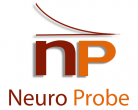Homocysteinemia is an independent risk factor for cardiovascular disorders. The recruitment of monocytes is an important event in atherogenesis. Monocyte chemoattractant protein-1 (MCP-1) is a potent chemokine that stimulates monocyte migration into the intima of arterial walls. The objective of the present study was to investigate the effect of homocysteine on MCP-1 expression in macrophages and the underlying mechanism of such effect. Human monocytic cell (THP-1)-derived macrophages were incubated with homocysteine. By nuclease protection assay and ELISA, homocysteine (0.05-0.2 mM) was shown to significantly enhance the expression of MCP-1 mRNA (up to 2.6-fold) and protein (up to 4.8-fold) in these cells. Homocysteine-induced MCP-1 expression resulted in increased monocyte chemotaxis. The increase in MCP-1 expression was associated with activation of nuclear factor (NF)-kappaB due to increased phosphorylation of the inhibitory protein (IkappaB-alpha) as well as reduced expression of IkappaB-alpha mRNA in homocysteine-treated cells. In conclusion, our results demonstrate that homocysteine, at pathological concentration, stimulates MCP-1 expression in THP-1 macrophages via NF-kappaB activation.
http://ajpheart.physiology.org/content/280/6/H2840.long
